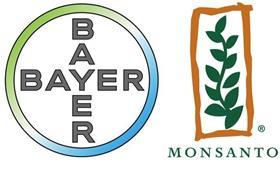
The US Department of Justice has given the green light to the Bayer-Monsanto merger, a month after EU antitrust regulators granted their own approval, in a deal worth US$62.5bn.
The merger, which faces widespread opposition from environmental and farming groups, will give the combined company a share of more than a quarter of the world’s seed and pesticides market.
According to the Wall Street Journal, the deal was approved after Bayer agreed to sell additional seed and treatment assets to BASF, as well as making concessions related to digital agriculture.
However, a survey of 1,000 farmers in the US, conducted in February by a coalition of farming groups, revealed the level of concern over the proposed Bayer-Monsanto merger.
According to the poll, 93.7 per cent of responding farmers expressed concern that the merger would negatively impact independent farmers and farming communities, with 83.9 per cent “very concerned”.
Respondents’ top three concerns regarding the merger were that the combined company would: use its dominance in one product to push sales of other products (91.9 per cent); control data about farm practices (91.7 per cent); and increase pressure for chemically dependent farming (89 per cent).
Wenonah Hauter of advocacy group Food & Water Watch said the deal would reduce competition for sales of seeds and chemicals to farmers struggling with low crop prices, increasing the risk of price gouging.
“The Justice Department’s paltry divestment approach does little to address the extreme control the merged firm will have over farmers’ data, genetics, biotechnology traits or the associated agrichemical industry,” she said.
The merger continues the recent consolidation in the industry following last year’s tie-ups between Dow Chemical and DuPont and between ChemChina and Syngenta. While critics argue that such consolidation will raise prices and reduce innovation and competition in the future, proponents insist the opposite is true.



